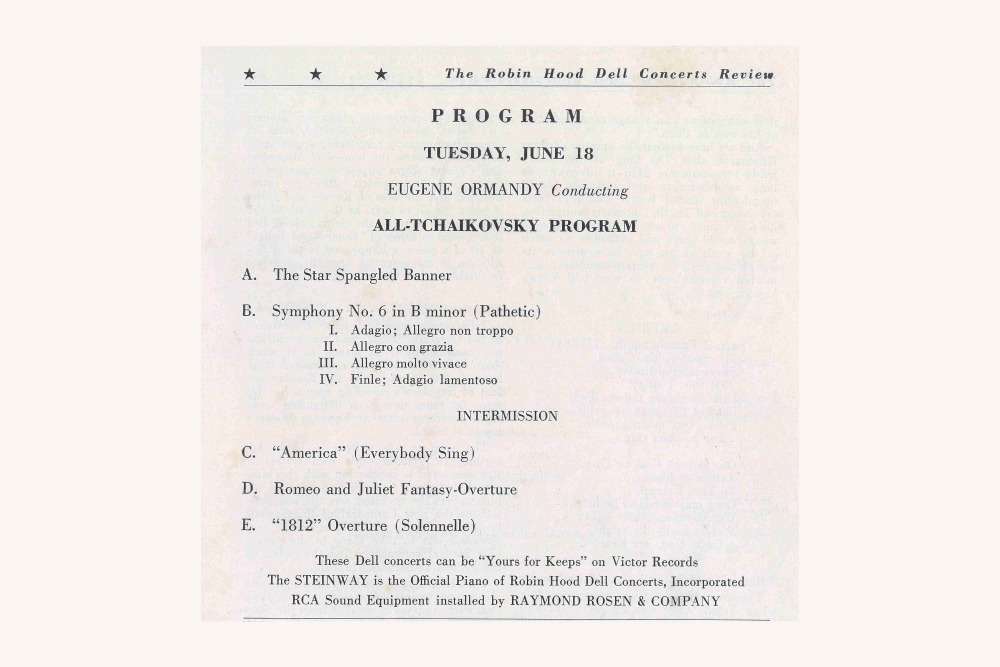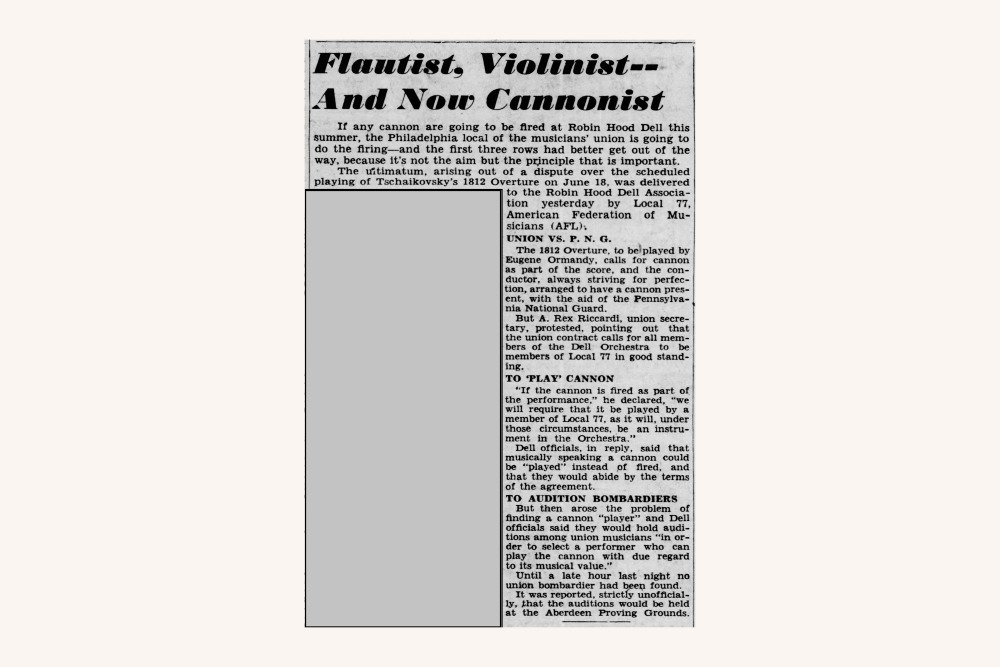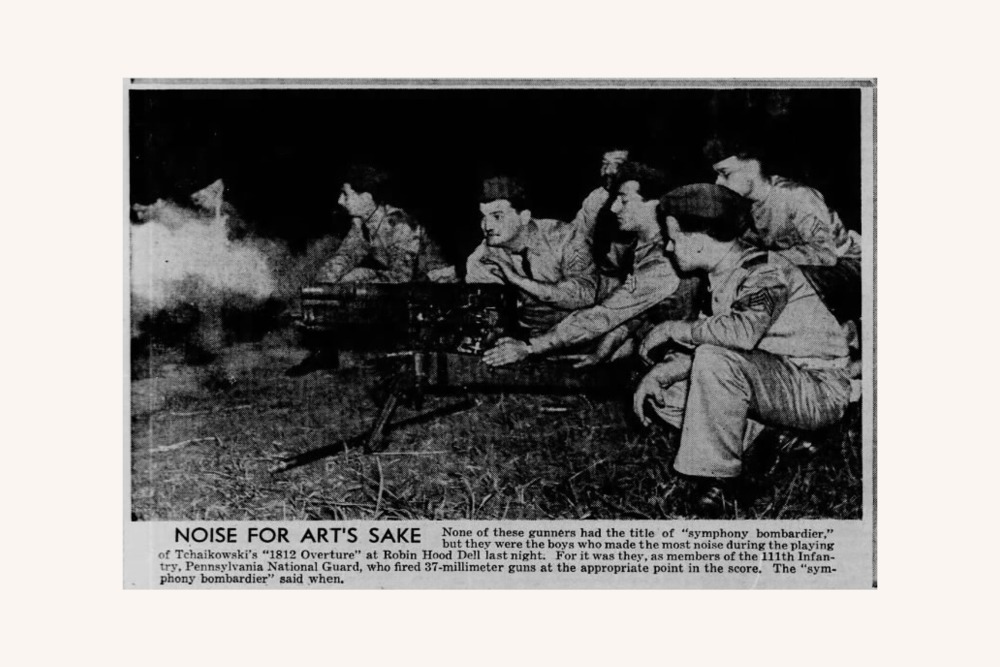From The Vault: 1940 Performance of the 1812 Overture at Robin Hood Dell
MANN MUSIC ROOM: VAULT
Blog Entry by Jack McCarthy, Historian, The Mann Center for the Performing Arts
The Mann Center traces its history to the Robin Hood Dell, which opened in 1930 in East Fairmount Park as a summer home for The Philadelphia Orchestra. In 1976 the organization moved to a new venue in West Fairmount Park. Originally called Robin Hood Dell West, it was later renamed the Mann Music Center in honor of its longtime director and benefactor Frederic Mann, and subsequently renamed the Mann Center for the Performing Arts.
Music director Eugene Ormandy and The Philadelphia Orchestra planned to open the 1940 Robin Hood Dell season with a bang – literally. The first concert of the season on June 18, 1940, would be an all-Tchaikovsky program, culminating with the composer’s famous 1812 Overture, complete with actual cannon fire for the piece’s climactic finale. There was one problem, however: the Philadelphia musicians’ union, Local #77 of the American Federation of Musicians, which represented members of the Orchestra, stipulated that since the cannon was to be used as a musical “instrument” it had to be operated (played?) by a union member. The parties eventually came up with a creative solution.
Russian composer Pyotr Ilyich Tchaikovsky wrote the 1812 Overture in 1882 to commemorate his country’s successful defense against Napoleon’s army in the French invasion of Russia in 1812. The stirring piece quotes Russian folk songs and anthems and the French National anthem, "La Marseillaise," to depict the opposing forces, and ends with a thrilling orchestral climax accompanied by bells and real cannon fire. That is how Tchaikovsky originally scored the piece, but the practicality of using actual cannons made such instrumentation a rarity in performance; percussion instruments generally substituted for the cannon.
For the 1940 performance at the Robin Hood Dell, Ormandy opted to follow the original score and use a real cannon, with the assistance of the Pennsylvania National Guard. Upon learning of these plans, A. Rex Riccardi, secretary of Local #77, informed the Dell that “If the cannon is to be fired as part of the performance, we will require that it be played by a member of Local 77, as it will, under those circumstances, be an instrument of the Orchestra.” To comply with the union requirement, Dell officials held an audition at an armory in South Philadelphia, “in order to select a performer who can play the cannon with due regard to its musical value.”
Philadelphia musician Charles Lemisch, a sixty-four-year-old veteran of the Spanish-American War who had played French Horn during fighting in Cuba, was chosen to serve as “bombardier” for the concert. Although not a member of The Philadelphia Orchestra, Lemisch was a member of Local #77 and would be paid union scale for his services. In actuality, his role was ceremonial; he did not “play” anything. For the concert, a squad of gunners from the 111th Infantry, Pennsylvania National Guard, was set up with a pair of thirty-seven-millimeter anti-tank guns on the bank of the Schuylkill River, accompanied by Lemisch and Orchestra assistant conductor Sylvan Levin. As the Orchestra played, Levin followed the score with a flashlight and at the appropriate time cued Lemisch, who cued the guardsmen to fire.
While not exactly what Ormandy had originally envisioned—or Tchaikovsky had written—it had the desired effect. The Philadelphia Inquirer described the concert as a “triumphant success,” reporting that “the baby cannon were fired alternately, not simultaneously, at five-second intervals, and thus, with the musical reinforcements of the Orchestra under Mr. Ormandy’s direction … the inaugural all-Tchaikovsky program came to a blaring, enthusiastically applauded end.”


